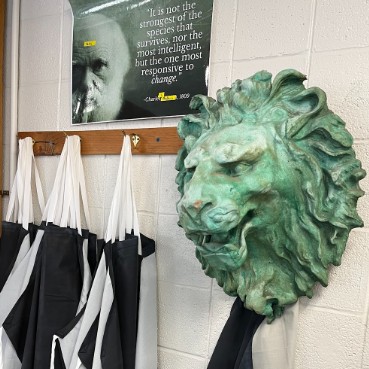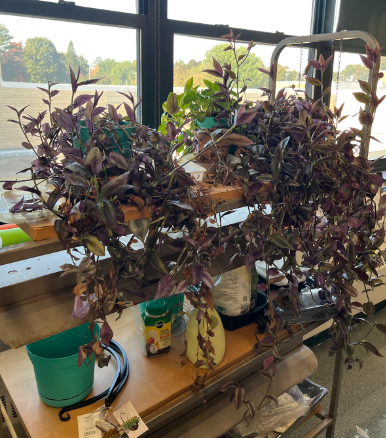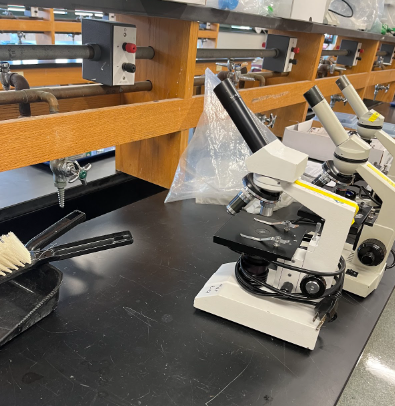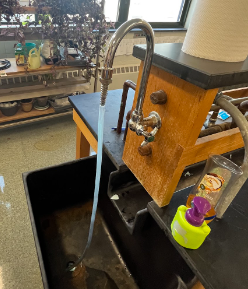Last year, open teaching positions in the school and across the district were not filled in order to fit the decreased town budget for the schools. On the chopping block included two open science department spots left by the now retired Mr. Lee and Mr. Sittard – who had left for another job.
The effects of these cut positions are already being felt by many students now unable to “double up” in science classes or being assigned to more crowded classes.
The issue is complex, as it is understandable and inevitable that the school district would have had to make some cuts down the line. As Mrs. Nemeth states “The amount of 8th graders coming into LHS has decreased significantly in the past two years,” and now the average class size, which is expected to be accurate for the foreseeable future, is 165 freshmen, which is down from 215. It would not make sense for the district to employ the same number of staff as they do now when the number of incoming high school students is decreasing by about 25%.
However, because there have been so many cuts made last year alone, it’s hurting the current high school population, who could still benefit from having these teaching spots filled. Yet, it can also be argued as to why you would only hire someone if you plan to fire them anyway shortly down the road?
Nevertheless, there is not as good of a reason as to why the school brought in new history teachers, but no new science teachers. After all, science teachers have a higher workload to manage due to the added lab days and already need voluntary teacher assistants to help. The addition of extra students to already full classes only adds more weight onto that already heavy workload.
It can also be dangerous, as Mrs. Sands pointed out, especially concerning the overall safety of the labs.
Lab days or “double block” classes, are classes with an extra period and are exclusive to science in order to fit in enough time for experiments. These double-period classes occur once a week for standard and honors classes and twice for AP classes. These labs can involve a multitude of different materials, some of which can be dangerous if not properly handled or if an accident were to occur.
The larger a class is, the more strain is put upon the teacher to ensure that the lab is operating safely and as intended. If the amount of students doing a lab at once is larger, the odds are greater of an accident or injury occurring.
Another issue that arises with larger class sizes is the ability for students to perform well and receive quality teaching. It is factual that students learn and perform better in an environment with less peers. Speaking from personal experience, I can say that I’m able to ask my teachers questions more often and easier when I’m in a less populated class. Less students also makes it easier to focus on my work, because there is less chatter echoing throughout the confined room. This combination ultimately allows me to achieve higher test scores and final grades, and I know this is true for other classmates.
Subsequently, teachers also benefit from small class sizes as it means there is less work for the teacher, which can be spent on the students. Ultimately allowing for the teacher to do their job more effectively.
A final point to mention is how the importance of science in schools has grown over the past 20 years. The exploding demand and need for careers within the “STEM” field, (Science, Technology, Engineering, and Mathematics) has made the subject more important than ever. As the technological gold rush has created a wide range of new job opportunities. The demand for these jobs is only going to continue to grow as more traditional and simple careers get replaced through automation.
It also needs to be acknowledged that science offers something that other subjects do not any more, the ability to critically think about the world around you, which is especially needed for an academic system becoming increasingly reliant on memorization and testing.
Although LHS still offers every type of science class it did last year, who is to say that this will not be subject to change further down the road. When it eventually does, how exactly can the school prepare all of its students for careers of the present and future, if students are unable to think for themselves, like the LHS mission statement bolsters during every morning announcement?





